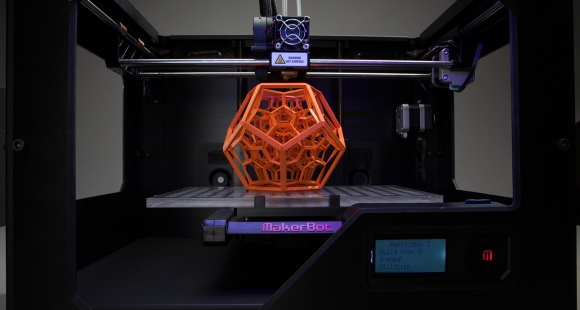
It's raining 3D printers at the Libera Università Carlo Cattaneo (LIUC). The private Italian university of 3,000 students was founded ten years ago by local manufacturers. Now LIUC is home to the new MakerBot Innovation Center, where students and local companies have 20 MakerBot 3D printers at their disposal. Remote access is also available thanks to a MakerBot network. Andreas Langfeld, General Manager of MakerBot Europe, says, "Users can save time by sending print jobs from anywhere."
LIUC is the first European university to open a MakerBot Innovation Center but it is preceded by seven U.S. schools. Center staffer Samuele Luri explains, "Like MakerBot, we want students and companies to understand how 3D printing can drive innovation." While the technical details of the companies' agreement are public, the finances are not. The equipment alone is worth €80 thousand but MakerBot is happy to invest in the market.
The company also has plans to install a 3D printer in every elementary school in the U.S. For Langfeld, "The rise of 3D printing mirrors the rise of computers in the 1980s. Schools show students a new technology. They spread it to their friends and family, then to their companies and then to society as a whole."
Over time, MakerBot has morphed from DIY darling to industrial heavyweight. The company began in 2009 as the brainchild of two open-source technology advocates. In 2013, it became a subsidiary of the 3D printing giant Stratasys. Its once modifiable machines switched to closed technology.
Fab labs, which encourage tinkering and are home to most of France's 3D printers, are among the critics of this new ethos. Cédric Bleimling, Fab Manager at the University of Lorraine Industrial Engineering School, explains, "MakerBot angered fab labs by closing its system. The brand's business priorities conflict with the values that inspired its creation." In response perhaps, MakerBot recently published a free guide for teachers. There's just one catch: the guide is only free for owners of MakerBot printers.






